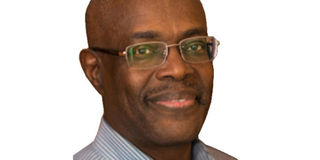Banyakigezi meeting in USA is about poverty alleviation, not partisan politics

Dear Tingasiga. Where two or three Banyakigezi gather in the name of their region, questions are raised in some quarters. What are the sons and daughters of the mountains up to? What is their political agenda? On whose side are they? This year is no exception. When we gather in Orlando, Florida this Thursday, for the annual convention of the International Community of Banyakigezi (ICOB), there will be the usual worry by some that we have a dark political agenda.
With the debate about lifting the Ugandan presidential age limit gaining steam, politicians’ antennae are on high alert for group action on the matter. We understand the fear. Many people find it hard to believe that people of different political views and allegiance can be united around a common cause, devoid of partisan politics. That was the situation when we gathered in Toronto in July 2003 for our founding convention.
It was only two years after the dramatic presidential contest between Yoweri Museveni and Kizza Besigye.
The latter was in exile in South Africa. Col Samson Mande and Col Anthony Kyakabaale, two Museveni-associates-turned-opponents, had just left Rwanda in May 2003, after what an allegedly failed effort to organise an armed rebellion against their old comrade.
Since Besigye, Mande and Kyakabale were Banyakigezi, any gathering of their ethnic kinsmen would cause understandable jitters in Kampala. Word reached us that some folks at home believed that we were planning to form an external wing of the rebellion.
Naturally, we dismissed the reports as unserious musings of people with plenty of free time to spare. Then two days before the Convention was to begin, I received a telephone call from Robert Rutaagi, who was the general manager of the National Medical Stores. The government was sending a delegation to join us at the convention, Rutaagi informed me. Could we delay the programme until they arrived, he wondered.
Rutaagi and I had known each other for decades, so he understood my hearty laughter in response to his request.
I assured him that we would be very delighted to receive the government delegation. What he may not have realised at the time was how sincerely pleased I was. The delegation, led by Dr George Mondo Kagonyera, consisted of Ms Hope Ruhindi Mwesigye, Brig Kale Kayihura, Maj Gen Jim Muhwezi and Mr Rutaagi. Kagonyera, Mwesigye and Muhwezi were ministers. Kayihura was the military assistant to the President.
They quickly discovered that they had got it all wrong. First, everyone was very friendly and out to have a good time with fellow Banyakigezi. Second, our agenda, completely devoid of partisan politics, focused on the need to create ICOB, on lessons from Kigezi’s past, on preservation and promotion of our culture, on honouring Omugurusi Festo Karwemera, the great Munyakigezi sage, and on a search for a peaceful resolution to the conflict between immigrant Bakiga and their Banyoro hosts. By the end of the conference, the Ugandan President’s emissaries had become founders of ICOB. There was no battle to fight in Toronto.
In the years that followed, both government and Opposition party politicians have attempted to curry favour with ICOB.
Depending on whom we have invited to participate in our gatherings, we have been accused of being allied to either to the ruling National Resistance Movement (NRM) or the opposition Forum for Democratic Change (FDC).
None of this has distracted us from our steadfast resolve to keep ICOB non-partisan and open to all Banyakigezi and friends of Kigezi, including President Museveni and his political opponents. We have no difficulty in separating personal political preferences from ICOB’s collective interests. We are not about to change course.
Anyone coming to Orlando expecting fireworks over the presidential age limit debate will be very disappointed.
The leaders of ICOB are determined to keep our convention a partisan politics-free zone. Of course, we have no control over private conversations outside the conference rooms.
No doubt we shall engage in serious politics that unites us as Banyakigezi, not the divisive kind that has undermined our region for decades. The serious social and economic challenges that Banyakigezi endure on a daily basis are non-partisan. Our terrible roads, our poor education standards, our anemic health services, our high maternal and newborn mortality rates, our dangerous levels of youth unemployment, the epidemic of alcohol abuse, the environment degradation, lack of significant wealth generating investments and widespread despondency are completely non-partisan. Poverty is non-partisan.
You get a heart attack in Mparo or Kanungu, you are dead whether your shirt is yellow or sky blue. You have obstructed labour in Kisoro or Rukungiri, you and your baby are very likely to die regardless of which finger sign you flash.
Our view is that Banyakigezi must rally together, take sides with Kigezi, stop undermining each other and fulfill the dreams of our great leaders of the past – men like Paulo Ngorogoza, Surumani Karegyesa, Paulo Rukyeribuga, Gaburieri Katabaazi and Michael Mukombe – who understood what mattered most and joined hands to get the best for colonial Kigezi. They are the role models of ICOB.
We intend to honour them by revving up our joint efforts to find a practical strategy for poverty alleviation in Kigezi. This will be the central conversation in Orlando.




